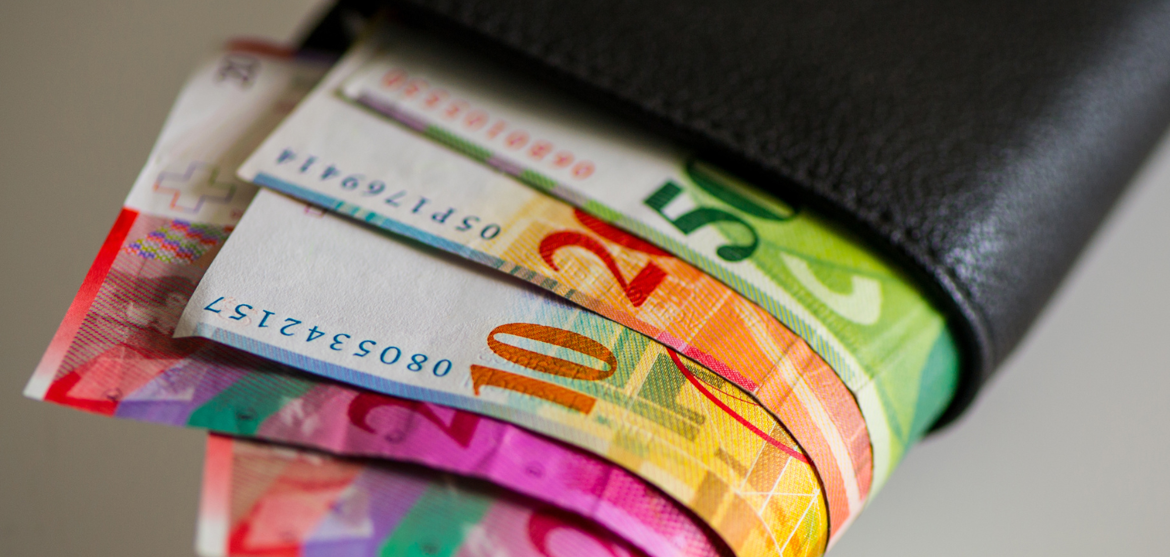
Just like in Germany and Austria, cash is still important in Switzerland, although its share in transactions has decreased. However, soon the Swiss will have the opportunity to vote on whether to keep banknotes and coins in circulation permanently.
Last week, news emerged that received little attention outside of Switzerland. The media in the UK, USA, France, Germany, and Spain barely covered it.
The Swiss Freedom Movement announced last week that it had collected enough signatures – a total of 111,000 – to hold a referendum on whether to keep cash in Swiss society for future generations. If it passes, the government must ensure that banknotes and coins are always available in sufficient quantities. In addition, the draft bill proposes a vote on whether the government wants to replace the Swiss franc with another currency, possibly referring to the central bank’s digital currency, as reported by Naked Capitalism.
According to Reuters, “Swiss citizens will have the opportunity to ensure that their economy will never be cashless,” says the campaign group. “Enough signatures have been collected to hold a referendum on the subject on Monday.”
The Swiss Freedom Movement says that cash plays a diminishing role in many economies because societies are becoming increasingly digital, and mainly transfers are used, which makes it easier for the government to track the movement of citizens’ money.
The draft bill proposes adding a clause to the Swiss Currency Act, requiring the central bank and government to ensure an adequate supply of banknotes and coins and that they always remain in circulation.
Under the Swiss direct democracy system, if the draft bill is approved in the vote, it becomes law. However, the government and parliament can decide how to implement the law.
The importance of cash
Although cash remains important, its role in the economy has declined. Like in Germany and Austria, cash is important in Switzerland, but its role in the economy has decreased in recent years. According to a 2020 survey of people’s spending habits conducted by the Swiss National Bank, 97% of Swiss citizens keep cash in their wallets for daily expenses, significantly higher than in many other countries.
In Switzerland, 40% of transactions are made in cash, which is also a higher figure than in other major European countries. In the UK, the figure is around 15%, less than 10% in Sweden, and 3-4% in Norway, the lowest in the world. The corresponding figure in Switzerland was still at 70% three years ago. When looking at the value of transactions, debit card payments recently exceeded cash payments.
As readers know, the pandemic accelerated existing processes, mainly due to people’s misconception that cash could accelerate the spread of the coronavirus. These fears were amplified by both mainstream media and certain retailers (such as the UK supermarket chain Tesco). Retailers used this to encourage consumers to avoid cash payments.
The Swiss National Bank (SNB) points out that cash has three unique advantages.
Firstly, cash makes managing money easy and clear. Controlling spending is easier with cash and coins. To assess whether you can make additional expenses, you just need to open your wallet. Parents give their children pocket money in cash, and there are good reasons for that. Using payment terminals, you only see how much money will be taken from your plastic card in the future.
Secondly, cash is easy to use, allowing everyone to participate in the economy and social life. You do not need an account or mobile phone to pay with coins and banknotes. You also do not need to be familiar with digital technologies.
Thirdly, when you pay in cash, you do not have to disclose your personal information, such as name or card number. With electronic payments, a person’s payment history is recorded.
In order for people to enjoy these benefits, according to Schlegel, it is the responsibility of the Swiss National Bank to maintain the Swiss cash infrastructure. This includes cash custodians (such as ATM operators) and commercial banks. In addition, it must be ensured that shops continue to accept banknotes and coins.
It should be noted that the outcome of the Swiss referendum will not automatically become law. One reader pointed out that there are several examples where the Swiss government, parliament, courts, or public institutions have delayed or completely abandoned unwanted legislative proposals.
The use of cash in Switzerland has declined in recent years, but it still plays an important role in the economy, with 40% of transactions still made in cash. The Swiss Freedom Movement has collected enough signatures to hold a referendum on whether to keep cash in Swiss society for future generations. If it passes, the government will be required to ensure that banknotes and coins are always available in sufficient quantities. The pandemic has accelerated the shift towards digital payments, but the Swiss National Bank highlights the unique advantages of cash, including ease of use, privacy, and control of spending. Maintaining the Swiss cash infrastructure will be the task of the Swiss National Bank if the referendum passes.
Source – https://tavexbullion.co.uk/the-swiss-people-vote-over-the-ban-on-cashless-society/
